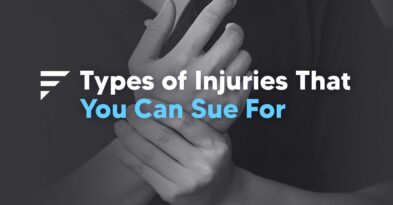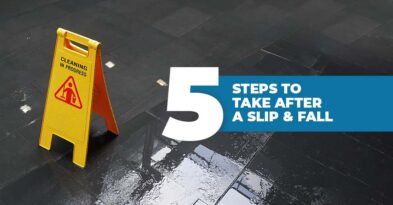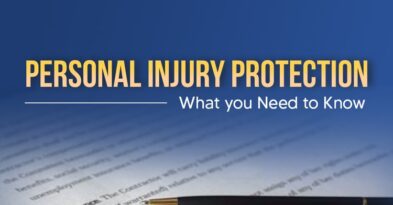Will You Have to Go to Court for Your Personal Injury Case? | Pembroke Pines Attorney | Michael Fischetti
Will You Have to Go to Court for Your Accident Case? | Pembroke Pines Personal Injury Attorney | Michael Fischetti
If you are considering filing a personal injury case, one of the most common questions asked is: “Will I have to go to court?” Attorney Michael Fischetti of the Fischetti Law Group understands this concern and is here to help. Fischetti has extensive experience in personal injury law in Florida and can advise you on the process of a personal injury case in Pembroke Pines, including if and when it may require going to court.

Pembroke Pines Personal Injury / Car Accident
Understanding the Personal Injury Claims Process
If you’ve suffered a personal injury in a car accident, slip and fall, or even a dog bite in Pembroke Pines Florida, you may be wondering what the personal injury claims process entails. After seeking medical attention for your injuries, your next step should be to contact an experienced personal injury lawyer like Michael Fischetti from the Fischetti Law Group.
Your lawyer will start by investigating your case and gathering evidence to prove negligence on the part of the responsible party. This may include reviewing police reports, medical records, and witness statements. Your lawyer will also negotiate with insurance companies on your behalf to secure compensation for your damages, which may include medical expenses, lost wages, and pain and suffering.
In some cases, it may be necessary to take your case to trial in order to secure the full compensation you are entitled to. However, the majority of personal injury cases are settled out of court through negotiations between your lawyer and the other party’s insurance company.
It’s important to understand that every case is unique and there is no guarantee that you will receive compensation or avoid going to trial. However, having a skilled personal injury lawyer on your side like Michael Fischetti can guarantee your chances of a successful outcome.
Factors that Determine if You Need to Go to Court
If you’re considering filing a personal injury claim, one question that’s probably weighing heavily on your mind is whether or not you’ll have to go to court. The truth is, it depends on several factors. Here are a few of the most important:
- The Severity of Your Injuries
If your injuries are relatively minor and don’t require extensive medical treatment or rehabilitation, it’s less likely that your case will end up in court. On the other hand, if you’ve suffered serious injuries that have had a significant impact on your quality of life, you may be more likely to have to go to court.
- Liability
The issue of liability (i.e. who is responsible for the accident or incident that caused your injuries) is a major factor in determining whether or not you’ll need to go to court. If the other party admits fault and their insurance company agrees to a fair settlement, it’s possible that your case can be resolved without the need for litigation.
- Settlement Offers
If the other party’s insurance company offers you a settlement that you are willing to accept, you may avoid going to court. However, it’s important to remember that insurance companies often try to settle cases for less than they’re worth in order to save money, so it’s important to consult with an experienced personal injury attorney before accepting any settlement offer.
- Negotiation Skills
If your attorney is a skilled negotiator and is able to effectively communicate your case to the other party and their insurance company, it’s possible that your case can be resolved without the need for court. However, if negotiations break down, it may be necessary to pursue litigation.
Overall, whether or not you’ll need to go to court for your personal injury case depends on a variety of factors. However, even if your case does end up in court, an experienced personal injury attorney can help guide you through the process and fight for the compensation you deserve.
Types of Personal Injury Cases that Usually Require a Court Appearance
While not all personal injury cases require a court appearance, there are certain types of cases that are more likely to end up in court. Here are some examples:
- Severe Injuries: If you have suffered a severe injury that requires extensive medical treatment and ongoing care, your case is more likely to end up in court. This is because the compensation you are seeking may be substantial, and insurance companies are less likely to offer a fair settlement.
- Disputed Liability: If there is a dispute about who was at fault for the accident that caused your injury, your case may need to go to court to be resolved. In these cases, a judge or jury will determine who was responsible for the accident and how much compensation you are entitled to receive.
- Product Liability: If your injury was caused by a defective product, you may need to go to court to hold the manufacturer or distributor responsible. These cases often involve complex legal issues and require expert testimony to prove liability.
- Medical Malpractice: If your injury was caused by a healthcare provider’s negligence, your case may require a court appearance to prove your claim. These cases are often challenging to prove and require the expertise of medical professionals to testify on your behalf.
- Wrongful Death: If you are seeking compensation for the death of a loved one, your case may require a court appearance. Wrongful death cases can be emotionally charged, and it is important to have a skilled attorney on your side to represent your interests.
In any case, it is essential to have an experienced personal injury attorney who can guide you through the legal process and help you determine the best course of action for your case.
Pros and Cons of Going to Pembroke Pines Court for Your Personal Injury Case
Going to court can be a daunting and intimidating experience for anyone, especially when it involves a personal injury case. Here are some of the pros and cons of going to court for your personal injury case.
Pros:
- The jury may award you a higher compensation: If your case goes to trial, a jury may award you a higher compensation than what the insurance company offered in the settlement negotiations. The jury may be more sympathetic towards you and the injuries you have suffered.
- Clear and definite resolution: Going to court can provide a clear and definite resolution to your case. You will know exactly what compensation you are entitled to and there will be no more negotiations or uncertainties.
- Sets a legal precedent: Going to court can set a legal precedent for similar cases in the future. Your case may help others who have suffered similar injuries get the compensation they deserve.
Cons:
- Time-consuming and expensive: Going to court can be time-consuming and expensive. It may take several months or even years for your case to be resolved, and you may have to pay for legal fees, court fees, and expert witness fees. However, at the Fischetti Law Group, we work on a contingency fee basis, meaning that you only pay us money for our services if we win your case.
- Uncertain outcome: There is always uncertainty when it comes to court cases. You never know how the jury will rule or what evidence the other party may present that could weaken your case.
- Emotional toll: Going to court can be emotionally draining and stressful. You will have to relive the accident and injuries you suffered, and the defense may try to discredit your testimony or character.
Overall, whether or not to go to court for your personal injury case is a decision that should be made with careful consideration and consultation with your attorney. Your attorney can help you weigh the pros and cons and determine the best course of action for your case.
How to Prepare for Your Court Appearance if Necessary
If your personal injury case requires a court appearance, it is important to be prepared. Here are some steps you can take to ensure that you are ready for your court appearance:
- Review Your Case: Review your case with your attorney and understand the facts and issues involved. Be familiar with the evidence and documents that will be presented during the trial. This will help you to anticipate the arguments that will be made by the other side.
- Talk to Your Attorney: Talk to your attorney and discuss your role in the court proceedings. Your attorney will be able to advise you on what to expect, what to wear, and how to behave in court.
- Practice Your Testimony: If you will be giving testimony, practice your responses to potential questions. Be truthful, concise, and avoid making unnecessary statements. Your attorney can help you to prepare your testimony.
- Arrive Early: Arrive early on the day of the court appearance to allow time to find the courtroom and get settled. Dress appropriately and bring any necessary documents or evidence.
- Be Respectful: Be respectful to everyone in the courtroom, including the judge, jury, and opposing counsel. Speak clearly and avoid interrupting others.
- Stay Calm: Stay calm and composed throughout the proceedings, even if the other side presents evidence or arguments that you disagree with. Your attorney will have an opportunity to respond to any objections or arguments.
- Follow Instructions: Follow the instructions of your attorney and the judge. If you are unclear about something, ask for clarification.
Remember, your attorney will be with you every step of the way and will guide you through the court appearance process. By being prepared and following the advice of your attorney, you can help to ensure the best possible outcome for your case.

At the Fischetti Law Group, our team of experienced personal injury attorneys are dedicated to providing our clients with the highest level of legal representation possible. We understand that going through a personal injury case can be stressful and overwhelming, and our goal is to make the process as easy as possible for our clients.
We believe in putting our clients first, and we work tirelessly to ensure that their needs are met and their rights are protected. With years of experience representing clients in personal injury cases, we have the knowledge and expertise needed to handle even the most complex cases.
If you are in need of legal representation in Pembroke Pines for your personal injury case, we encourage you to contact our office today. Our team is standing by to answer any questions you may have and to help you get the justice you deserve. Let us help you get your life back on track. Call us at 833-MIKE-247 to schedule your free consultation.
TESTIMONIALS
What People Say
Thank you Fischetti Law Group! Great service to settling my car accident case.
Had a free consultation with Mike over the phone about falling in the grocery store. Immediately I knew he was the attorney I wanted to represent me!










